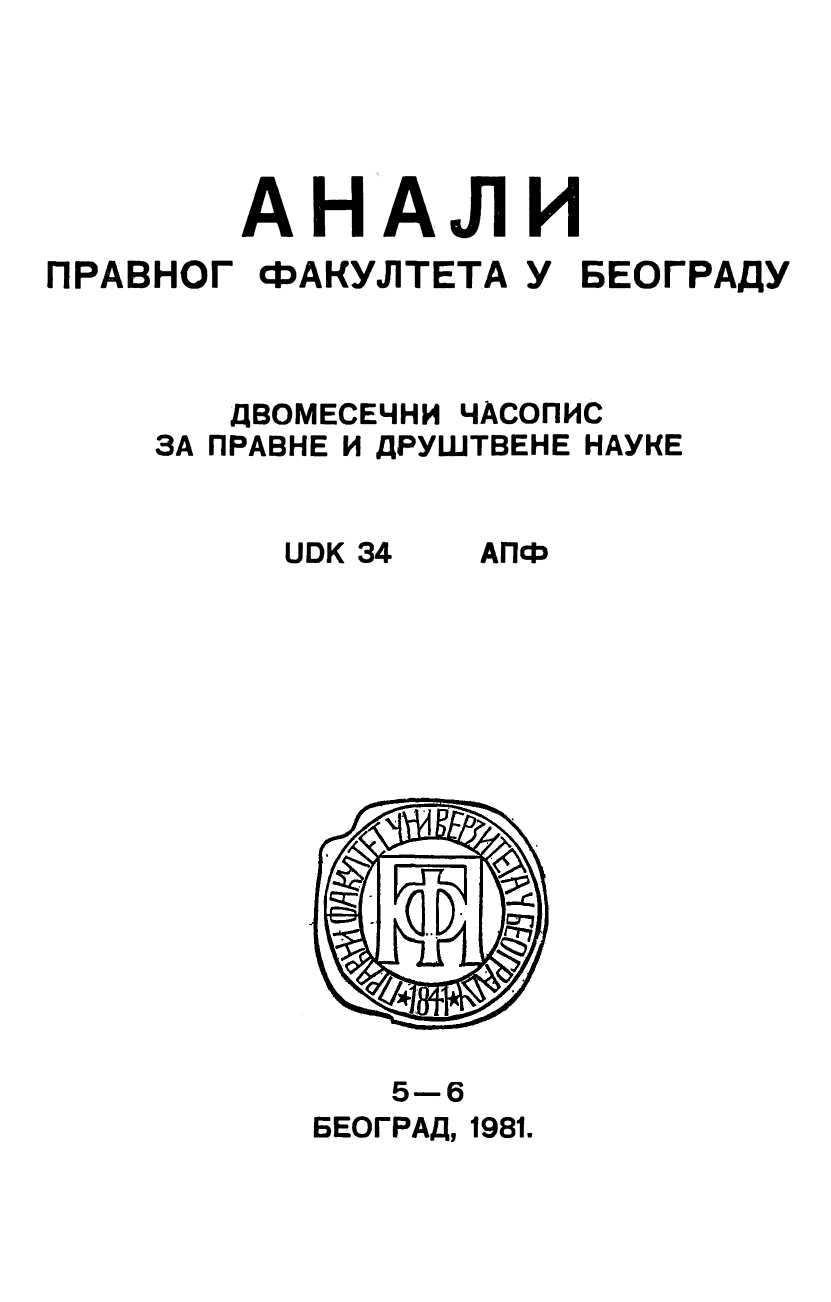САДРЖИНА И ПРАВНА ПРИРОДА ПРЕТПОСТАВКЕ НЕВИНОСТИ
THE SUBSTANCE AND LEGAL NATURE OF THE ASSUMPTION OF INNOCENCE
Author(s): Đorđe LazinSubject(s): Law, Constitution, Jurisprudence, Criminal Law
Published by: Правни факултет Универзитета у Београду
Summary/Abstract: In theory, it is most often considered that the assumption of innocence consists of the fact that the defendant is „not assumed guilty” or that the defendant is „assumed innocent” for the criminal act in question until it is proved otherwise by effective sentence of the court. The main defect of this conception lies in the fact that it does not correspond with the real position of the defendant in the criminal procedure. That is, if the defendant is really „not assumed guilty” or if the defendant „is assemend innocent”, then it cannot be explained why certain measures can be taken against him (or her) in the criminal procedure, which cannot otherwise be taken against an innocent person, such as temporary arrest or pre-trial confinement, search of premises, interrogation etc.. The correct conception of the assumption of innocence, free of the afore-mentioned defects, would consist of the fact that the defendant in the criminal procedure is „considered to be innocent „until proved otherwise by effective sentence of the court. This is a refutable legal assumption which is necessary in order to justify the fact that the burden of evidence in the criminal procedure does not lie with the defendant but the authorised prosecutor, furthermore, the court must pronounce an acquittal if either the guilt or the innocence of the defendant have not been proved beyond all reasonable doubt, in which case the defendant has remained under suspicion. The assumption of innocence understood as outlined derives from the mutual semantic ties of the Articles 218. para. 2 and Article 350. para. 3 of the Criminal Procedure Act of 1976. As to the legal nature of the assumption of innocence, it represents a principle of the criminal procedure because it fulfils the requirements for the general concepts of the principles of criminal procedure as they are defined in theory as well as for the refutable legal assumption of a specific character.
Journal: Анали Правног факултета у Београду
- Issue Year: 29/1981
- Issue No: 5-6
- Page Range: 311-326
- Page Count: 16
- Language: Serbian

